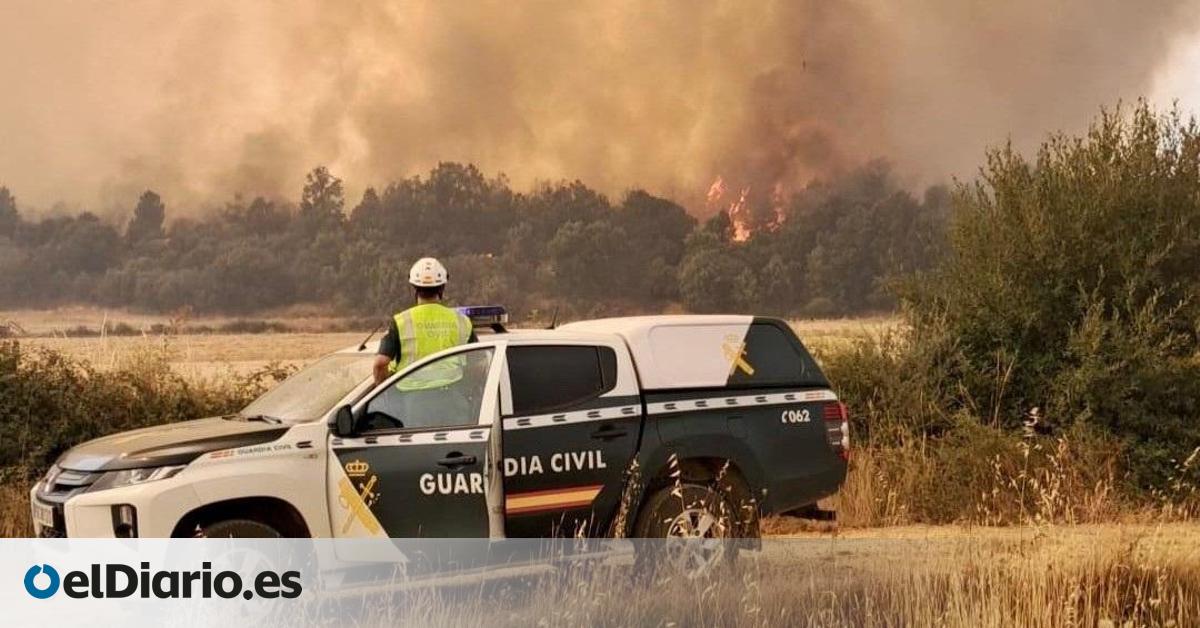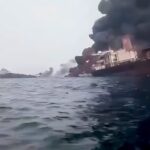
The Popular Party, which governs the autonomous communities most affected by the fire wave, has spent the last week trying to confuse what is the administration responsible for managing the extinction of the fires by launching new accusations against the government, which discredits from its conformation and tries to wear out before any event or tragedy. Alberto Núñez Feijóo himself interrupted his summer rest to ensure that the Executive was reaching “late” to the fight against fires and from his team the environmental tragedy was used to blame Moncloa of the consequences caused by the Dana de Valencia last October. The current regulations, however, is clear: in Spain the competence for fire extinction is of the autonomous communities that, according to laws, can also ask for additional help from the government in the case of needing it.
“It is the autonomous communities that are pulling the car with a government that is always saying that if they need it to ask for it,” the PP general coordinator, Elías Bendodo, lamented on Wednesday, although what he denounced is exactly what the law contemplates: that the regional governments that request more means to the Executive if they believe it appropriate. Feijóo, on the other hand, said at the beginning of the week that “the government is still on vacation”, when state troops had already been deployed in the most serious fires.
On Thursday the PP climbed the tone of his accusations. Genoa 13 summoned the media to an appearance of the Deputy Secretary of Social Policy, Carmen Fúnez, who taught the press an alleged document of the Ministry of Ecological Transition and Demographic Challenge that, he said, it was the contract “to be able to have effective people who respond to the fire situation that Spain was going to live this summer.” “What he says in one of his paragraphs is that the total aircraft scheduled in this file of 2025 amounts to 42, five less aircraft than those that had been hiring to date,” he said. As he said, that reduction would have occurred due to the inability of the government to approve the general budgets of 2025.
The Government reacted in a matter of minutes and accused the PP to disseminate “false” information. “The reality is that the number of aircraft from the Ministry for Ecological Transition and the Demographic Challenge for this campaign amounts to 56,” said sources from the department of Sara Aagesen. “The PP has used a single contract of the various contracts made by the Ministry in the context of the fire campaign,” they recalled from the Ministry, which also emphasized that the budget for the extinction of forest fires has experienced “an increase of 29% compared to the previous year, reaching 109.3 million euros compared to 84.4 million of 2024”.
This Saturday, Feijóo claimed the Executive again and requested the intervention of the army beyond the UME. Minister Óscar Puente’s response was not long in arriving: “All this asks is already being done. But he doesn’t care.”
After the affected autonomous communities requested their help from the government, this Saturday there were more than 1,400 military from the Emergency Military Unit (UME) fighting the flames, another 2,000 in support tasks and another 450 media of the same activated unit. They are also participating in military extinction work in the armies of earth and air. Only so far this week, the Air Force has made more than 375 flight hours and 1,077 water discharges.
To this are added 5,000 civil guards and 350 National Police agents, as well as half a hundred aircraft and eight helicopters, among other troops. Extinction competence corresponds to the Autonomous Communities by virtue of their powers in Civil Protection and Forest Management. The regulations establish, however, that the state administration can strengthen these operations either by contributing their own means or coordinating those provided by other administrations, including international aid.
In fact, on Thursday the two Bombardier CL-415-sent by France through the European Civil Protection mechanism to support the extinction work of active fires. This Sunday, two Italian Canada Airplanes arrived in our country on Saturday afternoon will be added to extinction tasks. The distribution of these media must be done in any case, based on technical criteria and intertritorial solidarity, to act where they are more necessary.
Potential gravity
In any case, according to Montes Law and develop the different statutes of autonomy, which have the range of organic law, it is the autonomous communities that have the competence in fire prevention and extinction. Sources from the Ministry of Interior explain that the “general principle” is that the competence before an emergency is of the communities, but when one of them sees its response capacity, it can request means to the central government or other communities.
In fact, it is the competent authority of each autonomy responsible for deciding the potential gravity of each fire based on meteorological, topographic, extension or media criteria with which it is counted, according to the civil protection planning guideline for forest fires. This statement goes from level 0 – when it affects only forest goods and is controllable with local media – to 3, in which a serious threat to population centers or infrastructure of special importance is appreciated.
Level 3 can only be declared by the Ministry of Interior and whenever the fire involves a threat of maximum severity to population centers, infrastructure or forest masses and its extinction overflows the autonomous means. And would mean an emergency statement of national interest. Sources from his department explain that the only time a similar measure has been adopted was as a result of the blackout at the request of different communities.
Interior Minister Fernando Grande Marlaska, said Wednesday in an interview in four that, for the moment, there is “no approach in this regard”, although everything will depend on how active fires are evolving.
In parallel, the Montes Law also establishes that the municipalities located in the so -called Tsar – high fire risk – must have a specific plan to prevent fires from occurring or proliferate. Pursuing the elaboration, fulfillment and supervision of these plans also depends on the autonomies. The NGO Greenpeace has denounced this week the Tsar list of the Community of Madrid, which exempt municipalities as three songs to adopt a municipal action plan for emergencies for forest fires. This is information that the organization requested in 2022 to the Community of Madrid and that has not been updated since then.
Source: www.eldiario.es

